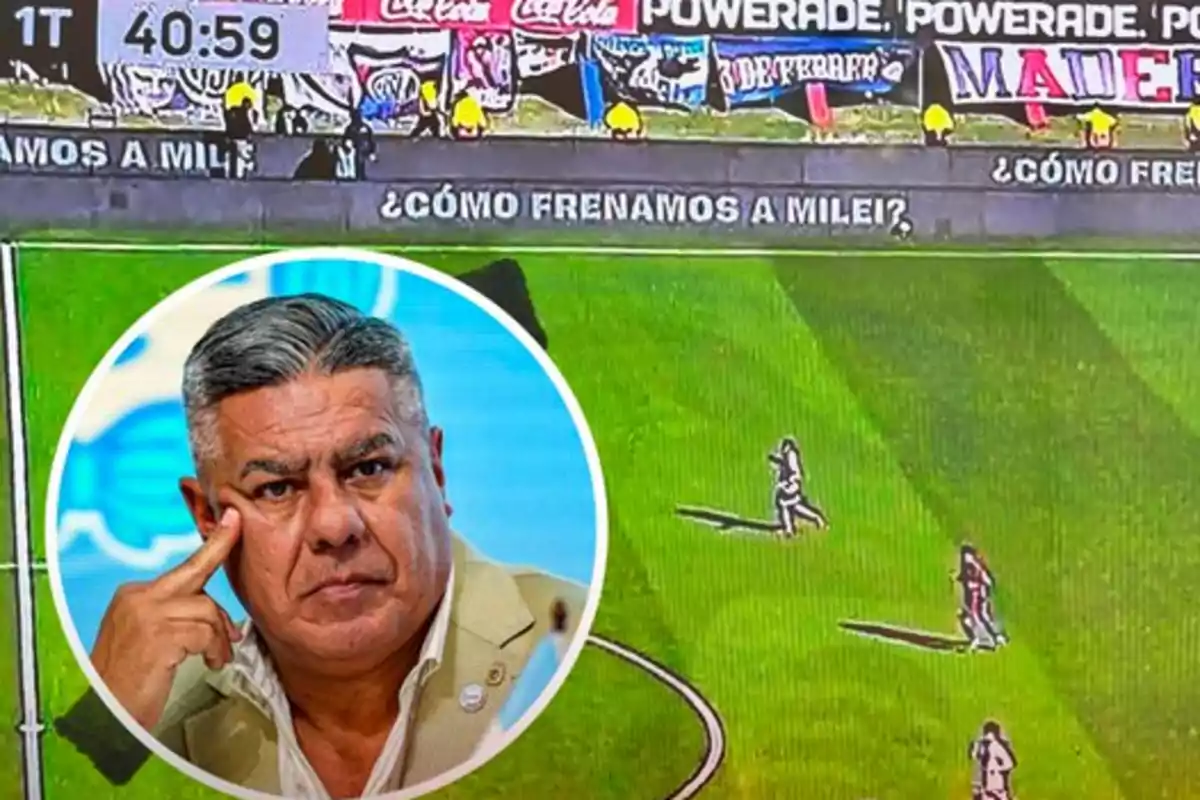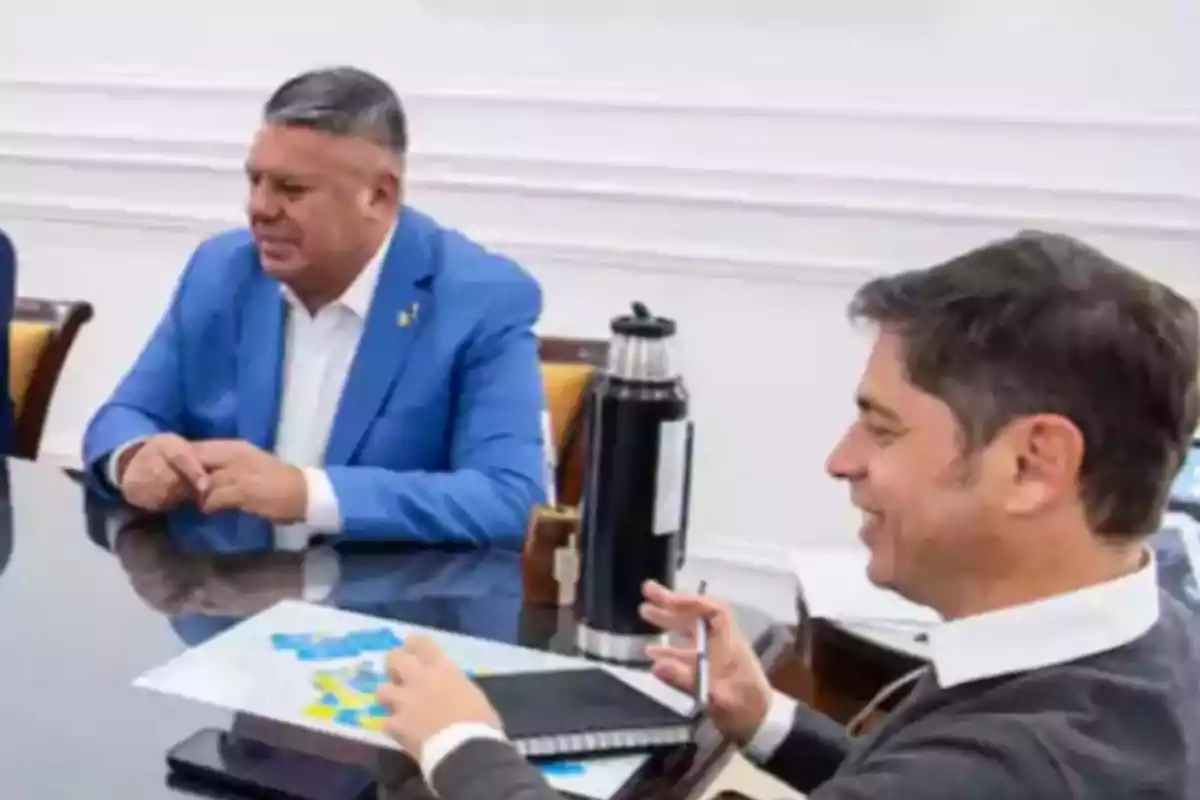
Chiqui Tapia promotes Patria Grande during soccer matches
On San Lorenzo's field, the following was displayed: 'How do we stop Milei? September 7 Fuerza Patria.'
Argentine soccer, a cultural refuge for millions, is going through a critical moment: it has become a political battleground where the leadership of the Argentine Football Association (AFA) and the most radical Kirchnerism are using stadiums for their own interests. The figure of Claudio "Chiqui" Tapia, reelected in 2020 "by acclamation" in a remote assembly without opposition, emerges as the architect of this fusion between sports power and political power.
The complaint about an advertisement in San Lorenzo's stadium with the slogan "How do we stop Milei? On September 7 Fuerza Patria", although not yet officially confirmed, revealed an obvious backdrop: the use of soccer as a platform for electoral campaigning. The message coincides with the date of the Buenos Aires legislative elections split by Axel Kicillof, on September 7, a strategy designed to isolate the provincial administration from the national October calendar and directly confront the Javier Milei Government.
El Chiqui Tapia utiliza los estadios de fútbol para hacer política y el kirchnerismo hizo pasar una publicidad con el texto "¿Cómo frenamos a Milei? El 7 de septiembre Fuerza Patria", en la cancha San Lorenzo.
Behind this scheme appears the "Fuerza Patria" faction, identified as the most radical core of Kirchnerism, with Cristina Kirchner as the central figure in the creation of candidate lists. The choice of a stadium as a propaganda channel is not accidental: the aim is to merge the identity of the fan with a partisan cause, transferring sports belonging to a political militancy.

The person responsible for ensuring this mechanism is Tapia, who has found in his confrontation with Casa Rosada the perfect reason to position himself as "national opposition leader." His strong rejection of the official proposal to transform clubs into Sports Corporations (S.A.D.) is presented as a gesture of defense of the associative model, when in reality it functions as a mechanism to maintain his hegemony and the support of his base, the "Ascenso Unido" group.
Although the AFA Disciplinary Code prohibits "any form of extremist ideology propaganda" and CONMEBOL itself bans messages of a political nature in stadiums, sanctions are never rigorously applied. The AFA Disciplinary Tribunal, accustomed to decreeing amnesties and mild sanctions, has turned the rules into a dead letter when it comes to cases that compromise Tapia's power.
More posts: